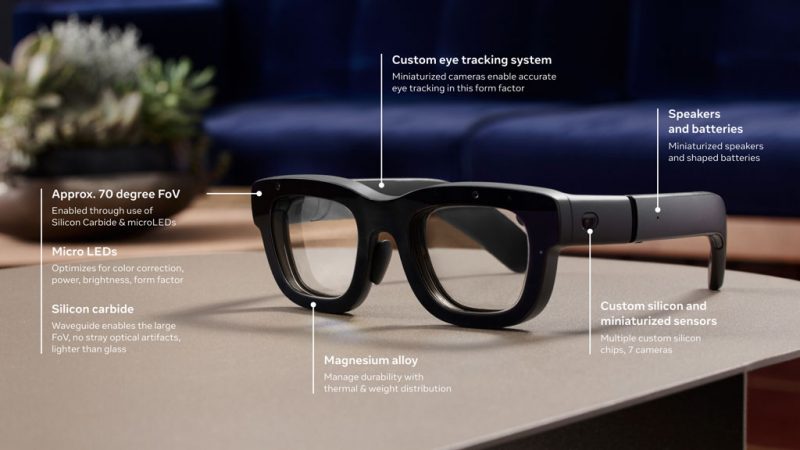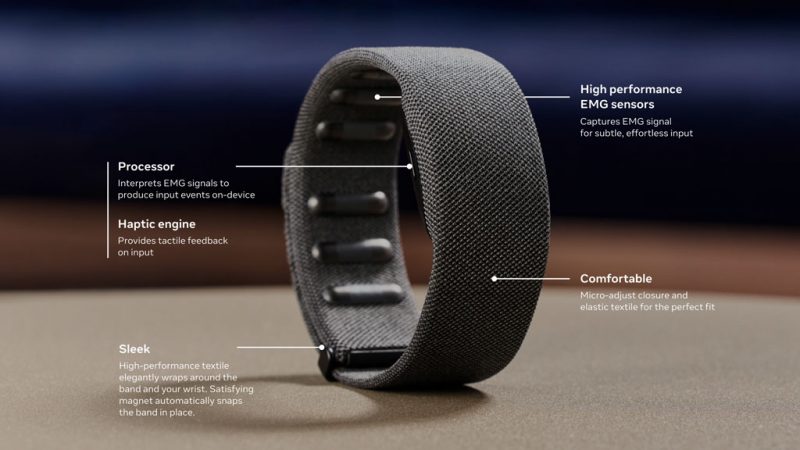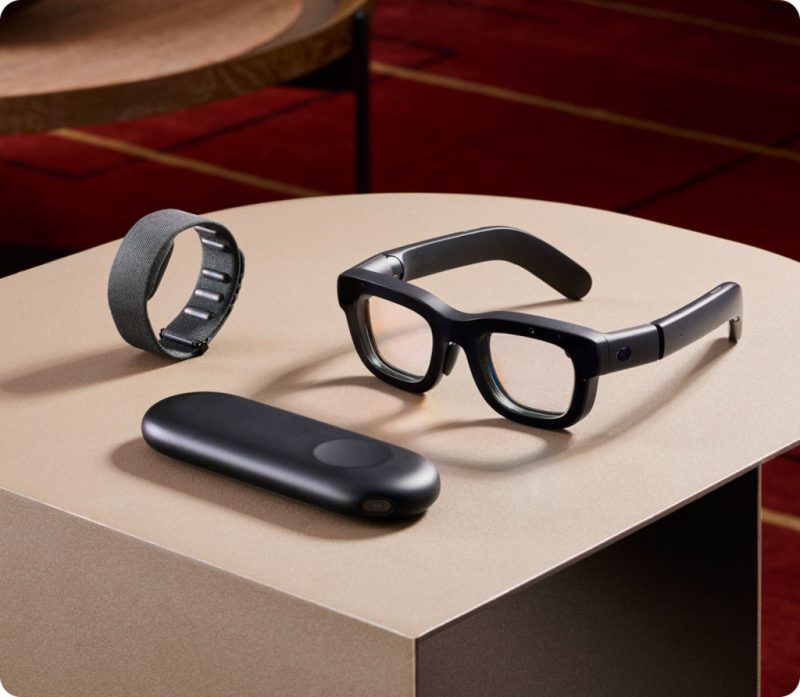
Meta’s Orion AR Glasses Gives Us A Glimpse into the Future of Augmented Reality
The world of augmented reality (AR) has long been filled with anticipation, and Meta’s latest revelation about its Orion AR glasses is sure to spark excitement and curiosity. With CEO Mark Zuckerberg showcasing what he deems “the most advanced glasses the world has ever seen” during the Meta Connect event, it’s hard not to imagine the immense potential that lies ahead. However, despite the fanfare, a cloud of questions and challenges continues to loom over Meta’s secretive AR project.

The Vision of Orion
Meta’s Orion AR glasses, kept under wraps for nearly a decade, have finally made their debut — well, sort of. What we saw during the presentation was a prototype, but it’s the culmination of billions of dollars and countless hours of research within Meta’s Reality Labs. As Zuckerberg envisions it, Orion has the potential to bridge the digital and real worlds in ways previously thought impossible, possibly even replacing smartphones in the future.
IS YOUR COMPUTER SECURE?
FREE Malware Removal
Detect & Remove Adware, Viruses, Ransomware & Other Malware Threats with SpyHunter (FREE Trial)
IS YOUR COMPUTER SECURE?
FREE Malware Removal
Detect & Remove Adware, Viruses, Ransomware & Other Malware Threats with SpyHunter (FREE Trial)
IS YOUR COMPUTER SECURE?
FREE Malware Removal
Detect & Remove Adware, Viruses, Ransomware & Other Malware Threats with SpyHunter (FREE Trial)
However, while the vision is revolutionary, it’s still just that — a vision. Meta’s target for shipping these glasses to consumers is 2027, but even that date seems optimistic. Despite the exciting glimpse we received, several former engineers on the project have raised concerns about whether Orion will ever reach the hands of consumers.
Obstacles to Realizing the Future of AR
Meta’s ambitious project is facing a mountain of hurdles, both technical and financial. The materials that make up Orion, such as the silicon carbide wave-guides and custom silicon, are costly — prohibitively so. With each wave-guide alone priced around $10,000, it’s no wonder early prototypes are expensive, pushing development costs into the hundreds of thousands of dollars. This makes mass production at a consumer-friendly price a significant challenge.
The issue isn’t just about materials. Trade restrictions have affected supply chains, preventing the expected drop in material costs. As a result, Meta will need to revisit and perhaps overhaul the design to bring down costs. Additionally, only a small number of the initial prototypes are functional, raising further concerns about the viability of this technology at scale.
A Bold Experiment or a Pipe Dream?
Zuckerberg likened Orion to a “time machine,” a product that provides a glimpse into a thrilling future. Yet for all the excitement, the question remains: Will Orion ever become more than just an experiment? The Reality Labs division, which houses the Orion project, has been burning through cash at an alarming rate, having lost over $50 billion since 2020. Investors are understandably skeptical, and analysts, like Doug Anmuth from JPMorgan, have projected further losses for Reality Labs, estimating $19 billion in 2024 and $23 billion in 2025.
This level of spending, combined with limited returns, has led to increasing pressure from Wall Street to scale back investment. Yet, during the Connect event, there was little indication that Meta would do so. While AR glasses like Orion are exciting, Meta’s bet on this technology is a costly one, and the returns are far from guaranteed.
Why Orion Matters and The Potential to Reshape AR/VR
Despite the hurdles, it’s important not to dismiss Orion’s potential. If Meta can overcome the production and cost issues, Orion could mark a significant milestone in AR/VR technology. Imagine a world where interacting with digital objects in real space becomes seamless — where virtual information is overlaid onto your physical surroundings without the need for cumbersome smartphones or other devices. The potential applications are endless: from gaming and entertainment to work collaboration and everyday tasks.

The combination of the glasses, a wristband for interaction, and a computing puck to power it all points to an integrated system that could redefine AR experiences. What Meta has in mind for Orion isn’t just incremental progress; it could represent a leap forward in human-computer interaction. The challenge, of course, is translating this vision into a product that’s practical and affordable.
Looking Forward to What’s Next for Meta and Orion?
There’s no denying that Meta’s Orion project is ambitious, and projects of this scale are always fraught with risks. Yet, the idea that AR could replace smartphones and change how we interact with the world is a compelling one. In many ways, Orion could be the cornerstone of a future where digital and physical realities merge in ways we can’t fully imagine yet. But for now, it’s still a concept, a work in progress that needs significant refinement before it can reshape our daily lives.

As Meta continues its journey, investors and tech enthusiasts alike will be watching closely. While questions remain about the financial sustainability of the project, there’s no doubt that Orion has the potential to be a game-changer. Whether it’s a moonshot or a moment of technological revolution, only time will tell if Meta’s investment will pay off in the long run.
For now, we can only admire the ambition behind Orion and hope that its future versions bring us closer to the long-awaited AR revolution. After all, this could very well be the start of something that will fundamentally change how we interact with the digital world around us.